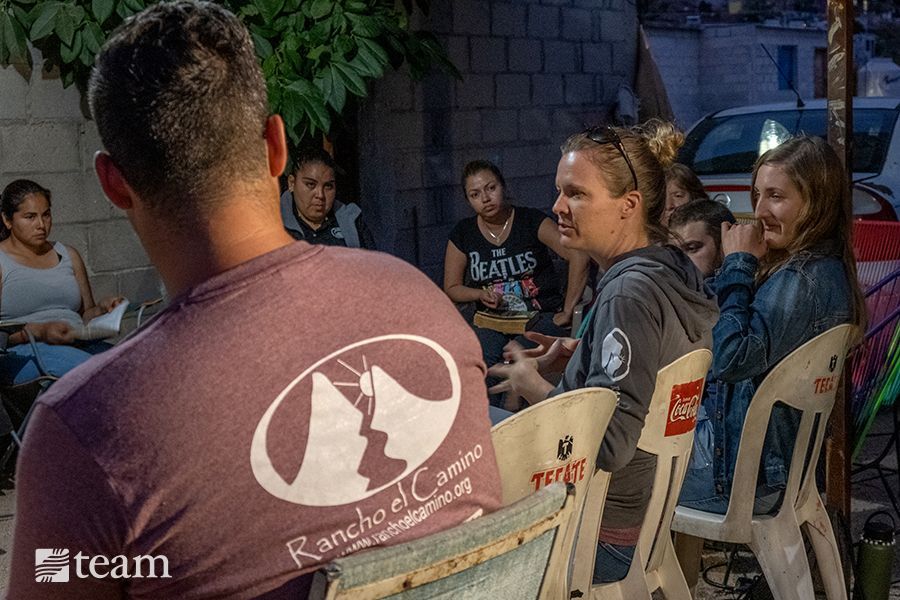In Ecclesiastes, Solomon warns us, “What has been will be again, what has been done will be done again; there is nothing new under the sun” ( 1:9 ). With that said, I believe we need to pay careful attention to what God may be doing in each generation.
Today, I am thankful for the shift in the global Church from the Global North/West to the Global South .
As Christian belief declines in the North, it is thriving in places like Africa, Asia and Latin America. And these regions are increasingly sending their own missionaries.
Now, before you worry that I’m somehow saying I’m thankful for a decline in Christianity in the West, please hear me. Rising “religious nones” in the West is something we should pay attention to. It demands a renewed attention to our ministry methods and mission practices.
But decline in the West aside, the growth of the Church in the Global South is something for which we can be thankful. As we in the West realize how much we need our brothers and sisters in the Global South, I believe we will become a more fruitful Church . We can grow in humility by seeing what God is doing in and through His people outside the West.
Reading Scripture Through Southern Eyes
I’ve gotten to experience this as a TEAM worker in Mexico. Over the years, I’ve learned and grown through my relationships with Mexican church leaders. I need their perspectives, not just to minister in Mexico, but also to help me see what God may want to do in my home country.
As I interact with leaders who are serving the Lord in very different contexts than my home culture, I’m learning to read the Bible with different questions.
I have friends who pray the Lord’s Prayer, trusting God for their next meal in a very literal sense. I have other friends who understand God as healer on a deeper level than I previously considered — because He is the only hope of healing for them and their families.
The questions they ask about God’s power and His faithful presence in their lives are informed by their human experiences . Their questions cause me to return to Scripture with new eyes. Returning to my context, I can more readily recognize where I may place more faith in cultural systems of power and accessibility than I do in God.
A Preview of God’s Throne Room
The shift in the global Church gives us a beautiful foretaste of what we will experience one day. “Standing before the throne” will be “every nation, tribe, people and language,” worshipping our great Savior ( Rev. 7:9 ).
Regardless of where you live, you can see a glimpse of this beautiful future. Between online services and international churches, it’s easy to find a church outside your cultural comfort zone.
I encourage you to incorporate an attention to diversity into your worship practice . Meditate on the beauty of the scene in Revelation 7. Attend to the new things you learn about God in cross-cultural worship settings.
But there is much to learn beyond worship practices. We need each other’s theological perspectives as well.

“Listening to leaders from the Global South has reminded me that theology is more than an intellectual activity,” writes Emily Johnson (pictured speaking in center).
Realizing My Theology Isn’t Neutral
Listening to leaders from the Global South has reminded me that theology is more than an intellectual activity. It’s meant to inform how we live our lives on mission, make choices and think in God-honoring ways. Theology demands a context and actual lived lives.
In many ways, theology from the West has been regarded as “neutral.” However, Western thought is not devoid of context. Like any faithful theology, it is developed from Scripture.
Yet, the questions we ask of the Bible are still informed by our context and our experiences. This is true even as the living Word of God transforms us with truth, grace and power.
The global Church offers us in the West a chance to grow a richer and deeper theology . Considering new questions and perspectives gives us greater appreciation for the riches of Scripture. It gives us a greater possibility for faithfulness as we all adjust to rapid changes in today’s culture.
Globalization has made access to diverse perspectives easier than ever before in history. We can read widely, worship and pray across the globe. We can listen humbly, repent where needed, and grow in our faith and mission practice. Listening well also prepares us for more fruitful partnership with the global Church.
We have an opportunity right now to develop broader and deeper perspectives. For that, I’m thankful as God continues to give us the privilege of participating with Him in His mission.




















